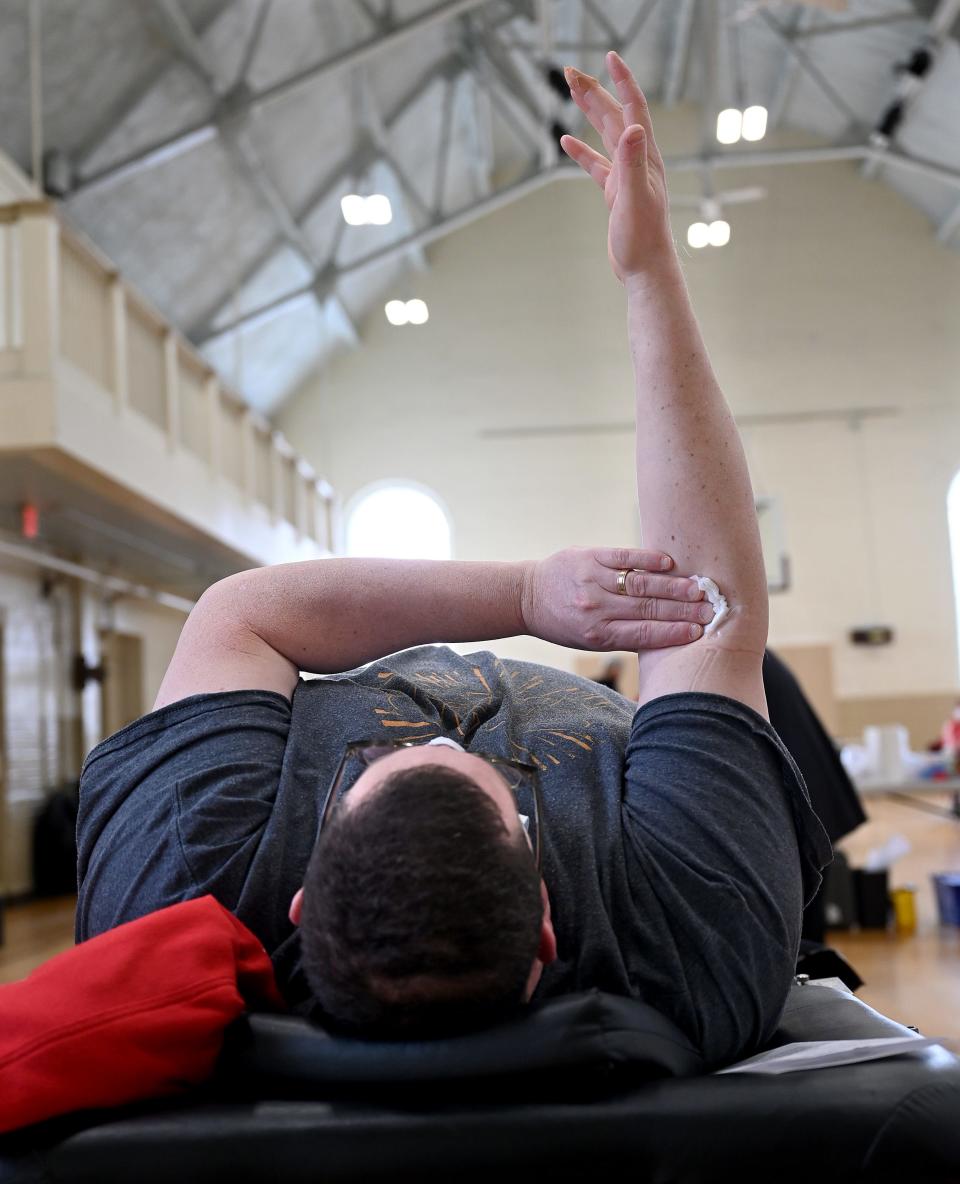When you donate blood, what diseases do they check for?
Q: What diseases do they check for when you donate blood?
A: We all take for granted that when we or one of our loved ones need a blood transfusion that blood will be available. Lifesaving blood transfusions may be required for emergencies such as trauma (for example a car accident), to replace blood lost during surgery, for patients with cancer (for example patients who get chemotherapy so they stop producing their own blood, platelets, etc.), for newborns with certain conditions and for many other reasons. Almost 18 million blood transfusions occur in the U.S. each year (one every 2 seconds), as well as around 2 million units of platelets and over 2 million units of plasma.

Despite active research, artificial blood does not yet exist so donated blood is needed to meet the demand. Red blood cells are perishable and must be used within 42 days of collection, so the supply must be constantly replenished, as must the supply of platelets and plasma. Donations to the American Red Cross supply about 40% of the blood needed, the rest comes from blood banks run by hospitals or other agencies. But limitations in our blood supply are common, in part because less than 10% of the population donates blood.
More: What's Up Doc? So many medical screening tests! Are they all really necessary?
More: What's Up Doc? Consider the medical implications of unintended pregnancy
The requirements to donate blood products are pretty easy to meet; you must be at least 17 years old (16 in some states) and weigh at least 110 pounds (the specific requirements for age, height and weight vary a bit state by state and may be different for males and females, so check with your local blood donation center). You should be in good health, have no exposure to hepatitis or AIDS and have waited at least eight weeks since your last donation.

All blood donors have:
a screening questionnaire completed to identify travel, behaviors and other risks factors for exposure to certain infectious diseases,
their vital signs checked,
their hematocrit checked to be sure their blood/iron levels are sufficient to donate,
questions asked to verify that they are feeling well with no signs/symptoms of a recent or active acute illness.
According to the ARC website, all donated blood is screened for:
parasitic diseases caused by Trypanosoma cruzi (the cause of Chagas disease, screened on someone’s first donation) and babesiosis (an intracellular parasite, screened in certain donors)
the bacterial disease syphilis
the viruses/viral diseases Human Immunodeficiency (HIV), Human T-Lymphotropic 1 and 2 (retroviruses thought to possibly cause certain types of cancers), hepatitis B, hepatitis C, Zika, and West Nile.
Donated blood is also tested for blood group (O, A, B or AB) and Rh type, and screened for atypical or unusual red cell antibodies. It is now also tested for COVID-19 antibody levels. Certain other tests, for example antibody tests for Cytomegalovirus (CMV), Human Leukocyte Antigens (HLA, on first time donations from female donors who indicate they have ever been pregnant), and possibly others, may be done on a portion of donated blood and/or in certain circumstances.
More: There are 500K new cases of Lyme disease each year in US; many don't remember tick bite
More: Brad Pitt has trouble recognizing faces. If you do, too, this might be why
When you donate blood products there will be a "pinch" when the specialist inserts the needle into your vein to enable the donation. Sterile conditions are used to prevent you from acquiring an infection. The donation part of giving blood takes around 10 minutes, although the screening and other evaluations done prior to taking the donation makes the entire process take up to an hour.
When you donate you will not know whose life you may have saved. But as you walk around your city or town, or in the mall, you will know in your heart that you may have been responsible for saving the life of a child that you see, or the parent hugging that child, or the grandparent sitting with that child on their knee. Call 1-800-RED-CROSS (800-733-2767) to see where and when it will be most convenient for you to give the gift of life, or contact your nearest hospital.
Jeff Hersh, Ph.D., M.D., can be reached at DrHersh@juno.com
This article originally appeared on MetroWest Daily News: what diseases do they check for when you donate blood to the Red Cross

